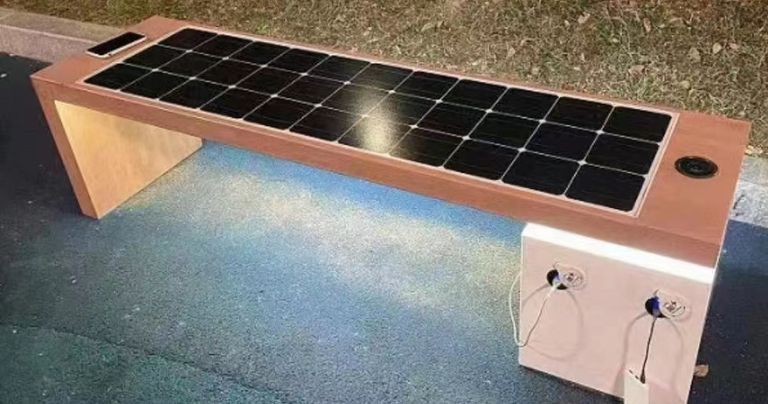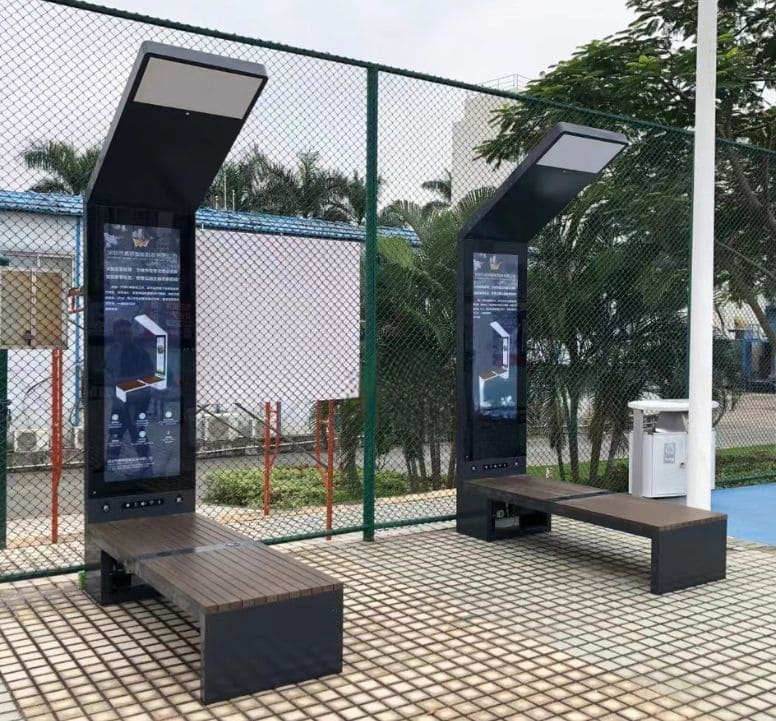As someone deeply involved in the business of providing sustainable urban solutions, I understand the importance of finding reliable solar bench suppliers who can ensure safe and timely shipping to the USA. The logistics of transporting such innovative and technologically advanced products require careful planning and expertise.
Choosing the right supplier for solar benches, especially for shipment to the USA, involves considering factors such as freight rates, import duties, VAT, and the efficiency of door-to-door delivery services. Ensuring that these elements are handled proficiently is key to a smooth import process.
Finding a supplier who not only provides high-quality solar benches but also excels in logistics can be challenging. Let’s explore the critical factors that you should consider to ensure reliable and cost-effective shipping to the USA.
What Should You Know About Freight Rates and Import Duties?
When importing solar benches to the USA, navigating the complexities of freight rates and import duties is a critical aspect that can significantly impact your overall costs and logistics planning. My experience in the industry has taught me that a clear understanding of these factors is essential for a smooth and cost-effective import process.
Understanding Freight Rates for Solar Benches
Freight rates are a pivotal component in the cost structure of importing goods, and they can fluctuate based on several market factors.
Factors Influencing Freight Rates
Several variables affect freight rates, including fuel prices, shipping demand, seasonality, and even geopolitical events. For example, an increase in fuel prices can lead to higher freight rates, directly impacting the cost of importing solar benches. Keeping abreast of these factors helps in anticipating changes in shipping costs and allows for more accurate budgeting.
Calculating Freight Costs
The calculation of freight costs for solar benches typically involves the volume or weight of the shipment. For instance, if you’re shipping four solar benches to Oklahoma City with a packing size of 180x120x80mm, the freight cost calculation would be based on the dimensional weight formula. Understanding this calculation is crucial for estimating shipping costs and making informed logistical decisions.
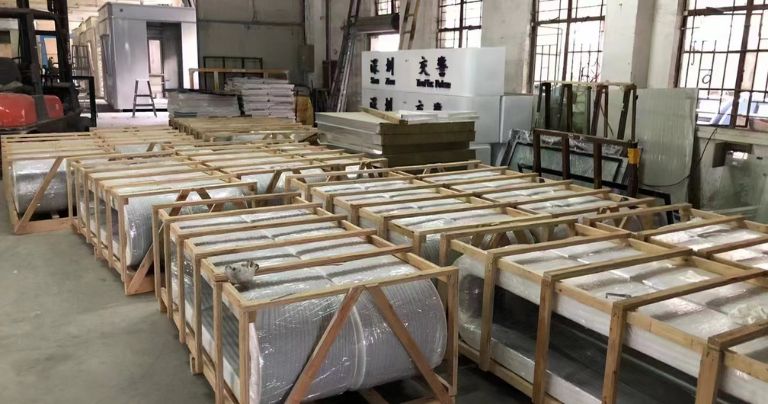
Navigating Import Duties and VAT in the USA
Import duties and VAT are significant financial considerations when importing goods into the USA.
Role of Customs Clearance Companies
For those experienced in importation, partnering with a customs clearance company can be invaluable. These companies can help navigate the complexities of import duties and VAT, ensuring compliance with US customs regulations. They provide expert advice on tariff classifications, duty rates, and any applicable taxes or fees.
Understanding Import Duty Rates
Import duties vary depending on the product and its country of origin. For solar benches, it’s important to determine the specific tariff classification and corresponding duty rate. This information helps in accurately calculating the total cost of import, including any VAT or additional taxes.
Preparing for Variable Costs
The international shipping landscape is dynamic, with costs and regulations subject to change. Being prepared for these variables is key to avoiding unexpected expenses and delays. This includes having a contingency budget for fluctuating freight rates and staying updated on any changes in import duty regulations.
Importance of Accurate Cost Estimation
Accurate cost estimation is vital in the import process. Underestimating costs can lead to budget overruns, while overestimating can affect your competitiveness. A thorough understanding of freight rates and import duties enables more accurate financial planning and helps maintain profitability.
In summary, understanding freight rates and import duties is crucial for anyone looking to import solar benches to the USA. This knowledge not only helps in managing costs but also ensures compliance with all regulatory requirements, facilitating a smooth and successful importation process.
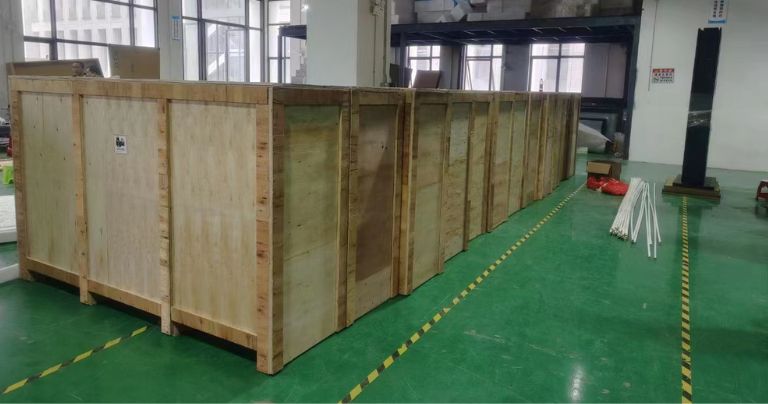
How to Ensure Efficient Door-to-Door Delivery?
In my experience with Solaranook, where we’ve catered to clients across various geographies, I’ve realized that ensuring efficient door-to-door delivery of solar benches, especially when shipping to the USA, is pivotal for customer satisfaction. This process involves more than just moving products from point A to point B; it encompasses a thorough understanding of logistics, a strong network of carriers, and meticulous planning to ensure timely and safe delivery of the products right to the customer’s doorstep.
Choosing the Right Logistics Partners
The foundation of efficient door-to-door delivery lies in partnering with reliable logistics companies.
Assessing Carrier Reliability
Selecting a logistics partner with a proven track record in international shipping is crucial. The carrier should be adept at handling customs clearance, familiar with import regulations in the USA, and capable of providing timely updates on the shipment’s progress.
Building Strong Relationships with Carriers
Establishing a good working relationship with carriers can lead to better service levels. Regular communication, understanding their capabilities, and providing clear instructions about the requirements for solar bench shipments can enhance the efficiency of the delivery process.
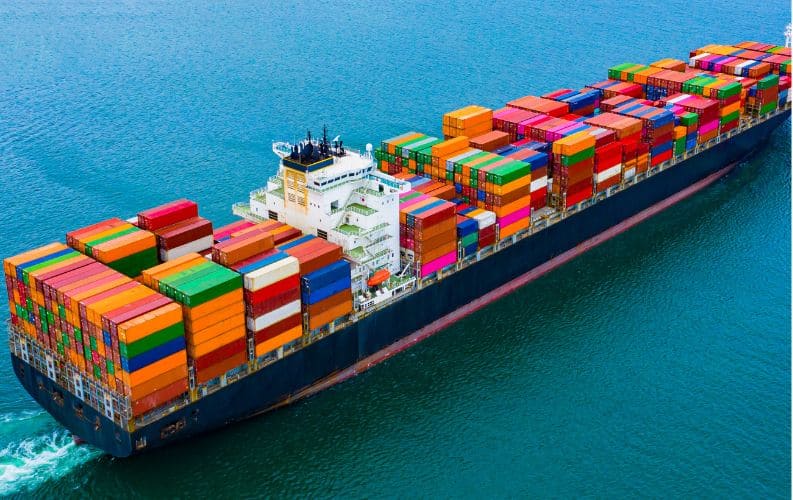
Streamlining the Door-to-Door Process
Efficient door-to-door delivery requires meticulous planning and execution at each step.
Coordination from Warehouse to Doorstep
Coordination between the warehouse, the carrier, and the end customer is essential. This involves scheduling pickups, managing transit times, and ensuring that the delivery aligns with the customer’s availability and expectations.
Handling Documentation Efficiently
Proper handling of documentation, including shipping labels, customs paperwork, and delivery notes, is key. Any discrepancies in documentation can lead to delays or complications during transit or at customs.
Managing Delivery Timeframes
Setting realistic delivery timeframes and communicating them effectively to customers is important for managing expectations.
Understanding Transit Times
Understanding the average transit times for different routes and carriers helps in setting accurate delivery schedules. Factors like distance, customs processing times, and local delivery procedures in the USA can impact these timeframes.
Communicating with Customers
Keeping the customers informed about the expected delivery dates, any potential delays, and the progress of their shipment enhances transparency and builds trust.
Addressing Challenges in Residential Deliveries
Delivering to residential addresses often presents unique challenges, such as restricted access for large trucks or specific delivery time windows.
Planning for Residential Deliveries
Planning for these challenges involves understanding the specifics of the delivery location and coordinating closely with the customer to ensure that the delivery is executed smoothly and without inconvenience.
Efficient door-to-door delivery of solar benches to the USA is a complex process that demands careful planning, reliable logistics partnerships, effective communication, and a customer-centric approach. By mastering these elements, suppliers can ensure that their products are delivered safely, on time, and to the complete satisfaction of their customers.

What Are the Cost Implications for Private Addresses?
Navigating the cost implications of shipping solar benches to private addresses in the USA is an aspect of logistics that requires particular attention. In my role at Solaranook, I have encountered various scenarios where shipping to residential areas presented unique financial considerations compared to commercial deliveries. Understanding these nuances is key to ensuring a transparent and cost-effective process for our customers.
Additional Shipping Costs to Private Addresses
One of the primary cost implications when shipping to private addresses is the potential for additional charges.
Understanding Residential Delivery Fees
Shipping companies often charge extra for deliveries to private, residential addresses. This is due to the additional effort required in these deliveries, such as smaller trucks for narrow streets, extra handling, or specific delivery time constraints. For instance, delivering to a residential area in Oklahoma City might include an extra freight charge of $150 over the standard rate.
Calculating the Total Delivery Cost
This means, for a customer ordering four units of solar benches with a packing size of 180x120x80mm, the total shipping cost would be calculated based on dimensional weight (180x120x80/6000=288, 288x$2.50=$720) plus the additional residential delivery fee. It’s crucial for customers to be aware of these costs upfront to avoid surprises.
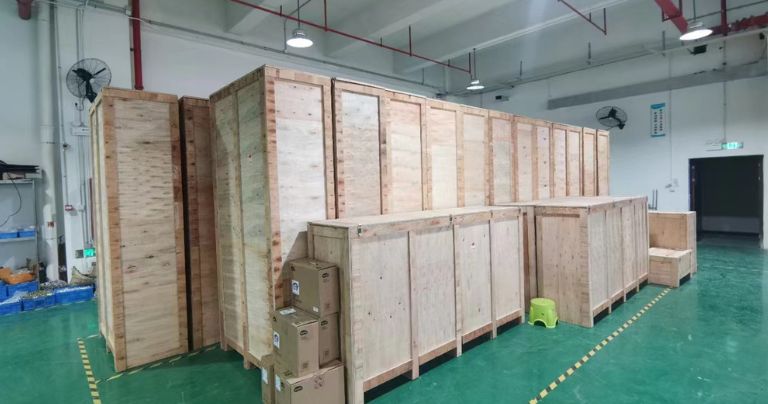
Balancing Cost and Convenience
While shipping to a private address may come with additional costs, it often offers convenience and peace of mind.
Weighing Cost Against Convenience
For some customers, the additional cost is a worthwhile trade-off for the convenience of having products delivered directly to their doorstep, especially for bulky items like solar benches. It eliminates the need for the customer to handle transportation from a local depot to their home, which can be a significant advantage.
Providing Clear Cost Breakdowns
As a supplier, it’s our responsibility to provide clear and detailed cost breakdowns. This transparency helps customers make informed decisions and manage their budgets effectively.
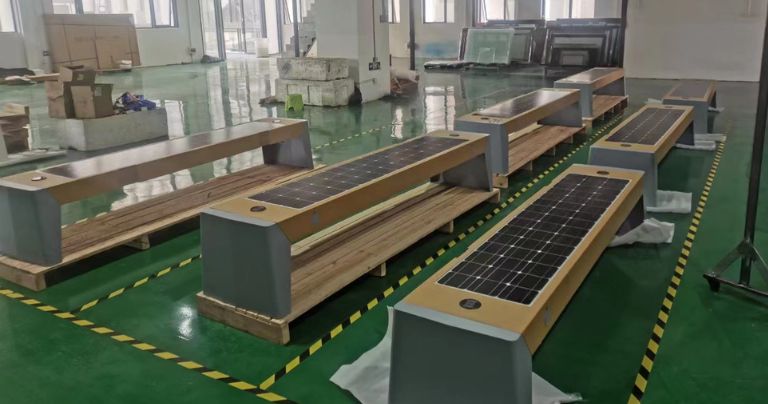
Strategies to Mitigate Extra Costs
There are strategies that customers can employ to potentially reduce these additional costs.
Exploring Alternative Delivery Options
Customers might consider having their order delivered to a nearby commercial address, like a local business they are affiliated with, to avoid the residential surcharge.
Consolidating Orders
Another strategy is order consolidation. If multiple units are needed over time, ordering them together can save on repeated delivery charges.
Long-Term Partnerships and Negotiations
For repeat customers, developing a long-term partnership with suppliers like us can lead to more favorable shipping terms over time. This could include negotiated rates for residential deliveries based on the volume and frequency of orders.
Understanding the cost implications for delivering solar benches to private addresses is vital for both suppliers and customers. By being aware of additional charges, weighing the balance between cost and convenience, and exploring cost mitigation strategies, customers can make well-informed decisions that best suit their individual needs and circumstances.
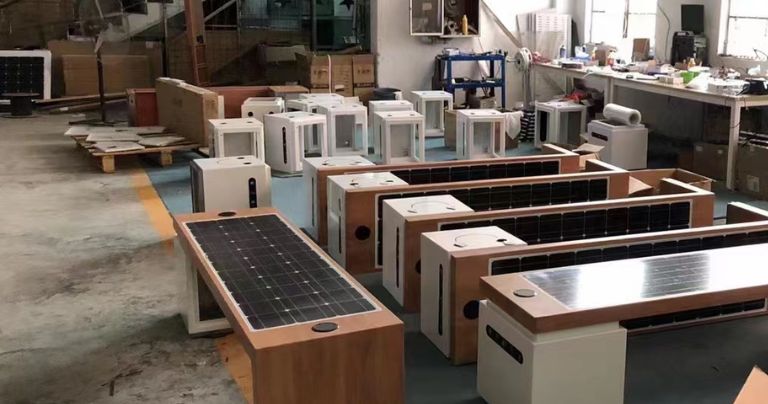
How to Choose a Reliable Supplier for the USA Market?
Selecting the right supplier for solar benches in the USA market is a decision that carries significant weight. It’s about finding a balance between cost, quality, customization, and logistics. In my experience with Solaranook, and through my understanding of competitors like EnGoPlanet, I’ve gained insights into the nuances of choosing a reliable supplier. Let’s explore the factors you should consider, especially when looking at suppliers like Solaranook from China and EnGoPlanet from the USA.
Assessing Quality and Price
The quality of the product and its price point are often the primary considerations.
Solaranook: Quality at a Competitive Price
Solaranook, based in China, stands out for offering high-quality solar benches at competitive prices. Their ability to provide products at a lower cost is a significant advantage, especially for those working within tight budget constraints.
EnGoPlanet: Premium Quality at a Higher Price
On the other hand, EnGoPlanet, a USA-based supplier, offers high-quality products with the assurance of local sourcing. While their prices may be higher, they appeal to those who prioritize local quality and are willing to invest more for it.
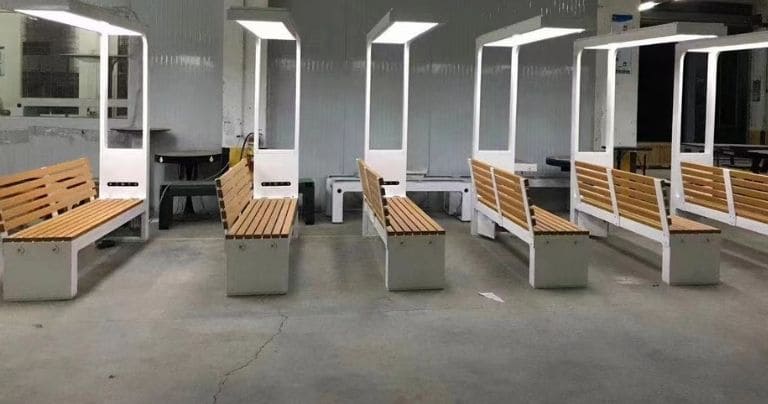
Customization Services
The degree of customization available can greatly influence your choice of supplier.
100% Customization with Solaranook
Solaranook excels in offering 100% customization services. This level of personalization allows you to tailor products to specific needs and preferences, a service that is particularly valuable for unique projects or specific aesthetic requirements.
Customization Options with EnGoPlanet
While EnGoPlanet may also offer customization, the extent and flexibility might differ from Solaranook. When choosing a supplier, consider how important customization is for your project and the level of personalization each supplier can provide.
Evaluating Global Transport Services
Considering the logistics of getting the product to your location is crucial.
Solaranook: Efficient Global Transport
Solaranook offers efficient global transport services, managing logistics from China to the USA. This includes handling shipping complexities, which can be a significant advantage for buyers unfamiliar with international shipping procedures.
EnGoPlanet: Local Shipping Advantages
EnGoPlanet, being based in the USA, naturally has an advantage in local shipping. The proximity can mean quicker delivery times and potentially lower shipping costs for US-based customers.
Long-term Reliability and Support
Beyond the initial purchase, consider the long-term reliability and support offered by the supplier.
After-Sales Service and Support
Look into each supplier’s track record for after-sales service. Ongoing support, warranty policies, and responsiveness to maintenance needs are critical for long-term satisfaction.
Building a Relationship with the Supplier
Establishing a strong relationship with your supplier can lead to better service over time. Consider how Solaranook and EnGoPlanet interact with their clients post-purchase and the level of ongoing support they provide.
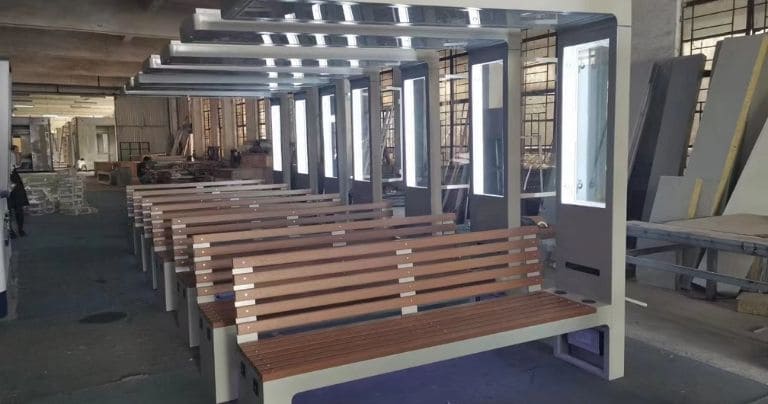
Local Regulations and Compliance
Especially when importing from overseas, it’s essential to ensure that the products comply with local regulations and standards.
Compliance with US Standards
Ensure that the supplier’s products meet all necessary US standards and regulations. This is crucial for smooth customs clearance and to avoid legal issues.
Choosing a reliable supplier for solar benches in the USA market involves a careful evaluation of quality, price, customization, transport services, long-term reliability, and regulatory compliance. Whether it’s Solaranook with its competitive pricing and customization options or EnGoPlanet with its local quality assurance, the decision should align with your specific needs, budget, and project goals.
Conclusion
Finding a solar bench supplier with reliable shipping to the USA involves understanding freight rates, import duties, and the nuances of door-to-door delivery. It also requires assessing the supplier’s reliability and the additional costs associated with residential deliveries. By considering these factors, you can ensure a smooth and successful import of solar benches to the USA.

